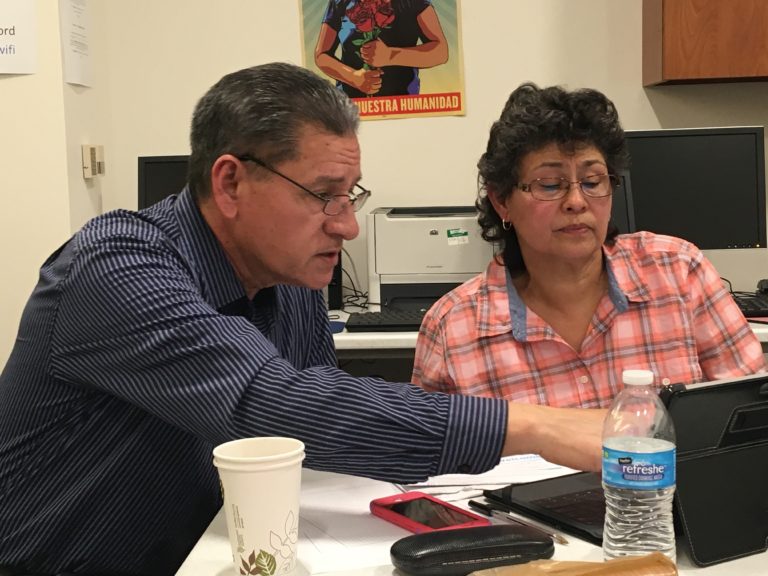Every day, Martin Velazquez uses Skype to chat with his two sons in Mexico. But keeping in touch wasn’t always so easy. Mr. Velazquez is a part-time janitor at the Oakland Coliseum who came to the US to support his family. He had little experience with computers and social media, which he knew would limit his opportunities. He decided to take a computer literacy class offered by Building Skills Partnership (BSP). And after finishing the class, he began informally teaching his colleagues computer skills in order to improve their career mobility, too. Soon, they started calling him the “Coliseum Professor.”
Mr. Velazquez is part of an invisible workforce. When we arrive in the morning to a clean office or attend a sporting event at a packed arena, the facilities staff, who work behind the scenes and after hours, aren’t there, yet they are the ones who ensure that we have orderly places to work and play, day in, day out. They may escape most people’s attention but BSP realizes that these workers are barely able to subsist on their meager salaries and therefore works to advance these workers’ social and economic mobility.
In the Bay Area, the vast majority of property service workers, such as janitors and security staff, are immigrants who have limited English skills and hold multiple low-paying jobs. Without much free time, they are unable to access opportunities for better income and working conditions, become naturalized citizens, and attain a decent quality of life for their families. Since 2000, BSP has partnered with janitors’ unions, commercial building owners, employers, client companies and community leaders to develop a training model that provides English language programs and workplace skills instruction – during paid-work time. In a recent survey, 80 percent of program participants reported that BSP provided the first and only English class they have taken while living in the United States.
Thanks to a $100,000 grant made last fall through the foundation’s People pathway, BSP is now developing new opportunities in Alameda and Contra Costa counties to support 200 more immigrant low-wage workers. The grant will also enable BSP to work on regional workforce development efforts and share its best practices in order to replicate its model in other industries.
After eight years of volunteering his time to teach his colleagues, Mr. Velazquez was hired in 2018 as a computer literacy instructor at BSP to help his fellow janitors develop their skills in an increasingly high-tech world.
By Jack Chin, foundation consultant


